Buttermilk Mashed Potatoes
Nov 20, 2024, Updated Sep 26, 2025
This post may contain affiliate links. Please read our disclosure policy.
This buttermilk mashed potatoes recipe is creamy, tangy, and easy to make! Yukon gold potatoes are mashed with butter, buttermilk, and sour cream for a totally irresistible side dish.
I like to serve these homemade mashed potatoes with my turkey gravy for the holidays and roast chicken or cracker barrel meatloaf for all the days!
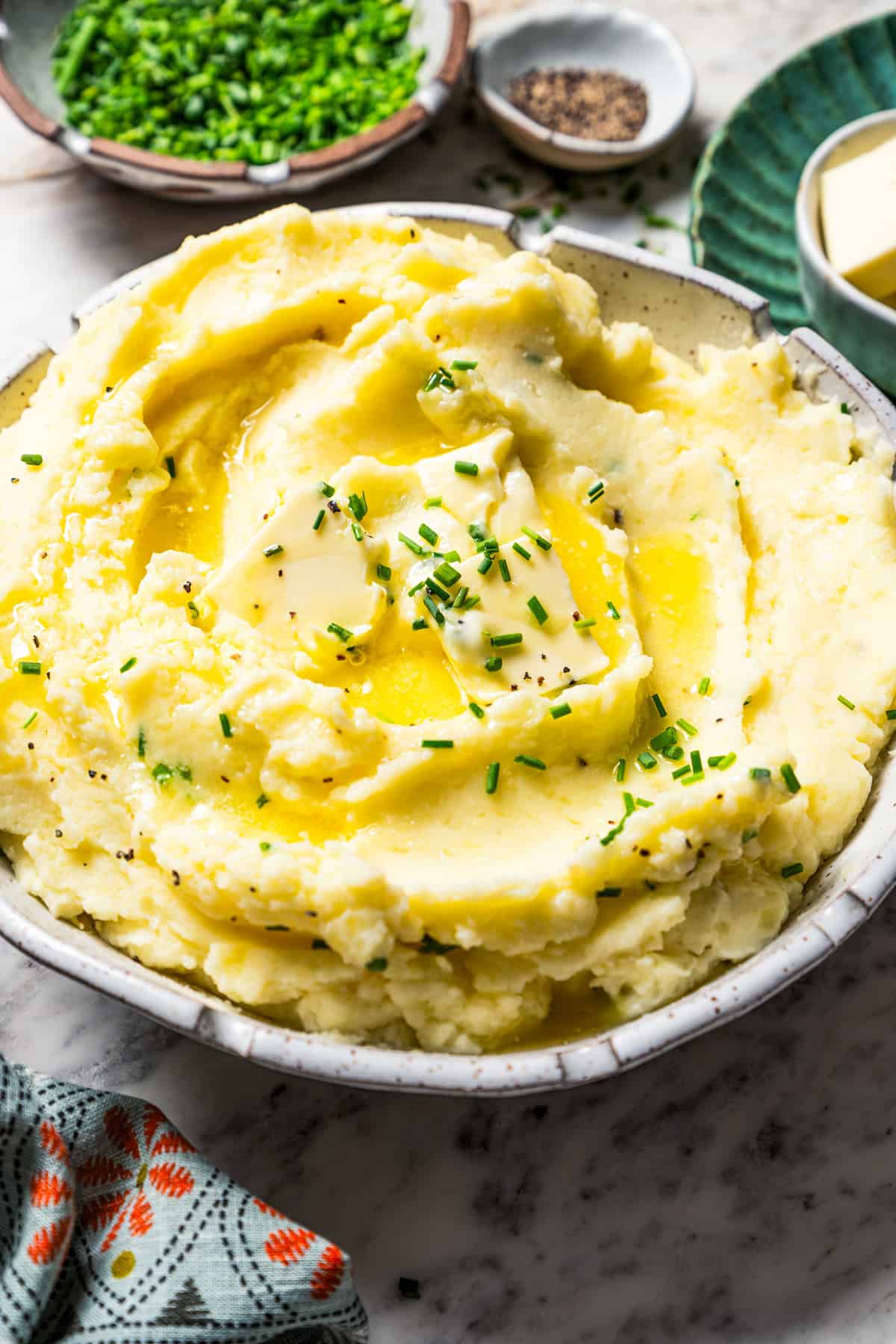
Thanksgiving and Christmas are right around the corner, which if you ask me, is the perfect excuse to break out a stellar mashed potatoes recipe. In my house, mashed potatoes are non-negotiable, and I’ve made them just about every way possible. Sometimes it’s garlic mashed potatoes for a little extra punch, or mashed sweet potatoes when I’m feeling festive. On busy holiday mornings, my crockpot mashed potatoes are a lifesaver.
These buttermilk mashed potatoes are simple to make and make a big batch of creamy potatoes you can serve alongside Thanksgiving turkey or honey-glazed ham for the holidays. They’re also fantastic with year-round favorites like coulotte or Tomahawk steak!
Why You’ll Love This Buttermilk Mashed Potatoes Recipe
- Easy. You’ll need less than 30 minutes and a few simple ingredients to make this mashed potatoes recipe. Just cook the potatoes and mash everything together.
- Flavorful. These mashed potatoes are fluffy, creamy and tangy all in one.
- Flexible. Serve them for holiday dinners, at summer cookouts, or as a simple side to this Mississippi chicken recipe or Swiss steak on busy weeknights. This recipe is so easy, fast, and delicious that it can really be served any time.
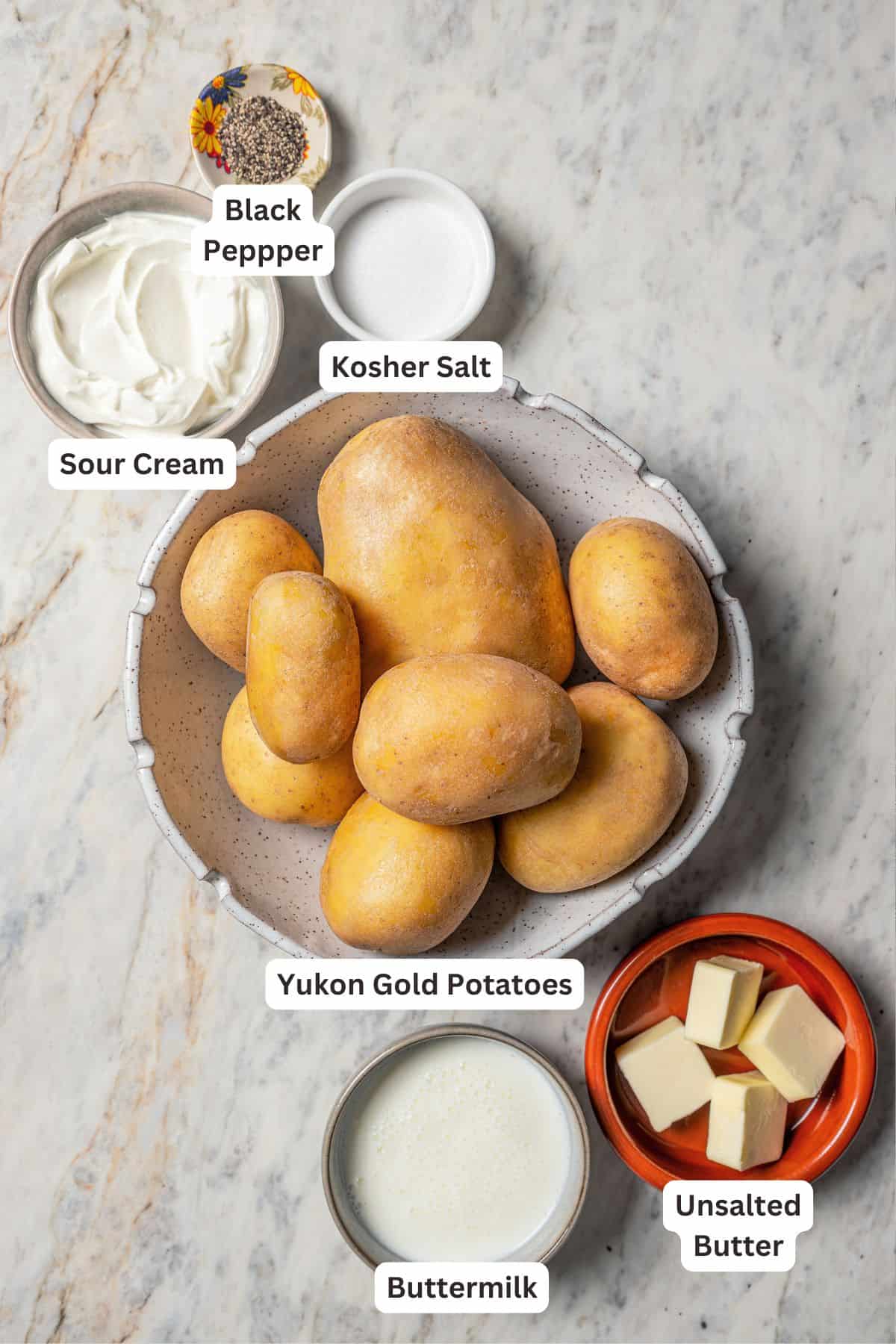
Recipe Ingredients
Here’s a quick look at the handful of ingredients you’ll need to make buttermilk mashed potatoes. Please scroll down to the recipe card for specific amounts and recipe instructions.
- Potatoes – I usually make this recipe with Yukon Gold potatoes. Note that the amount needed is by weight and that you are weighing the peeled and chopped potato pieces, not the whole potatoes.
- Kosher Salt & Ground Black Pepper – Simple seasoning to flavor the taters.
- Unsalted Butter – I recommend using unsalted butter so that you can add salt as-needed and avoid over-salting your food.
- Sour Cream – This adds a tasty tang to the finished potatoes.
- Buttermilk – Make sure you shake the buttermilk well before adding it to the potatoes. There is a range of how much buttermilk you can use. For creamier mashed potatoes, use more buttermilk. For thicker mashed potatoes, use less.
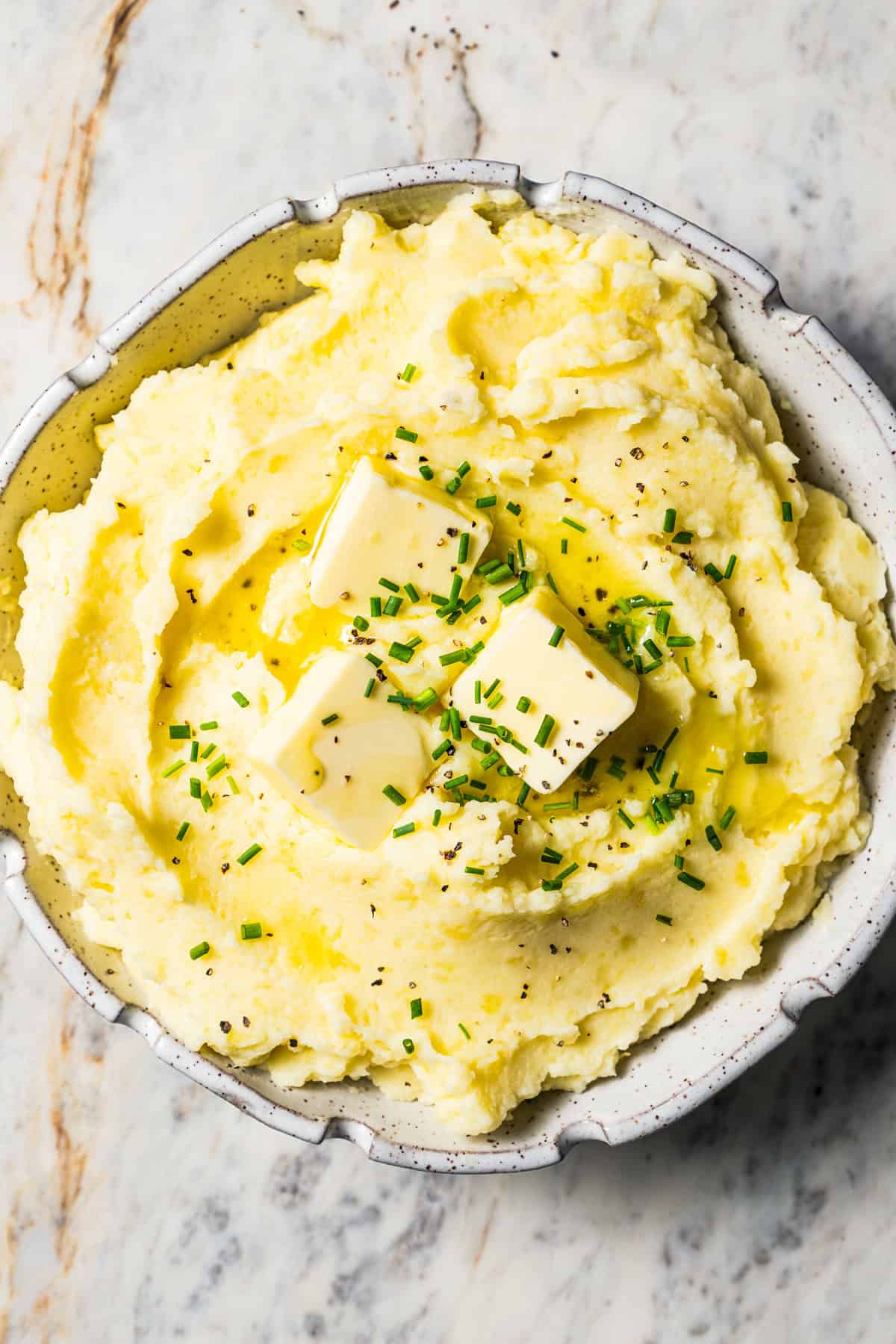
FAQs
I like to use Yukon Gold potatoes for mashed potatoes (and for melting potatoes and Vesuvio potatoes, too!). They have a tender, buttery texture that makes them super easy to mash. I also appreciate how thin and tender their skins are, so you can leave them on to add some texture to your mashed potatoes. It’s how I make these slow cooker garlic mashed potatoes.
Absolutely. When I used russet potatoes the resulting mashed potatoes were fluffier and not as creamy, but they were still delicious.
Yes, you can use regular milk. The potatoes will still turn out creamy and delicious, just without the tangy flavor that buttermilk adds.
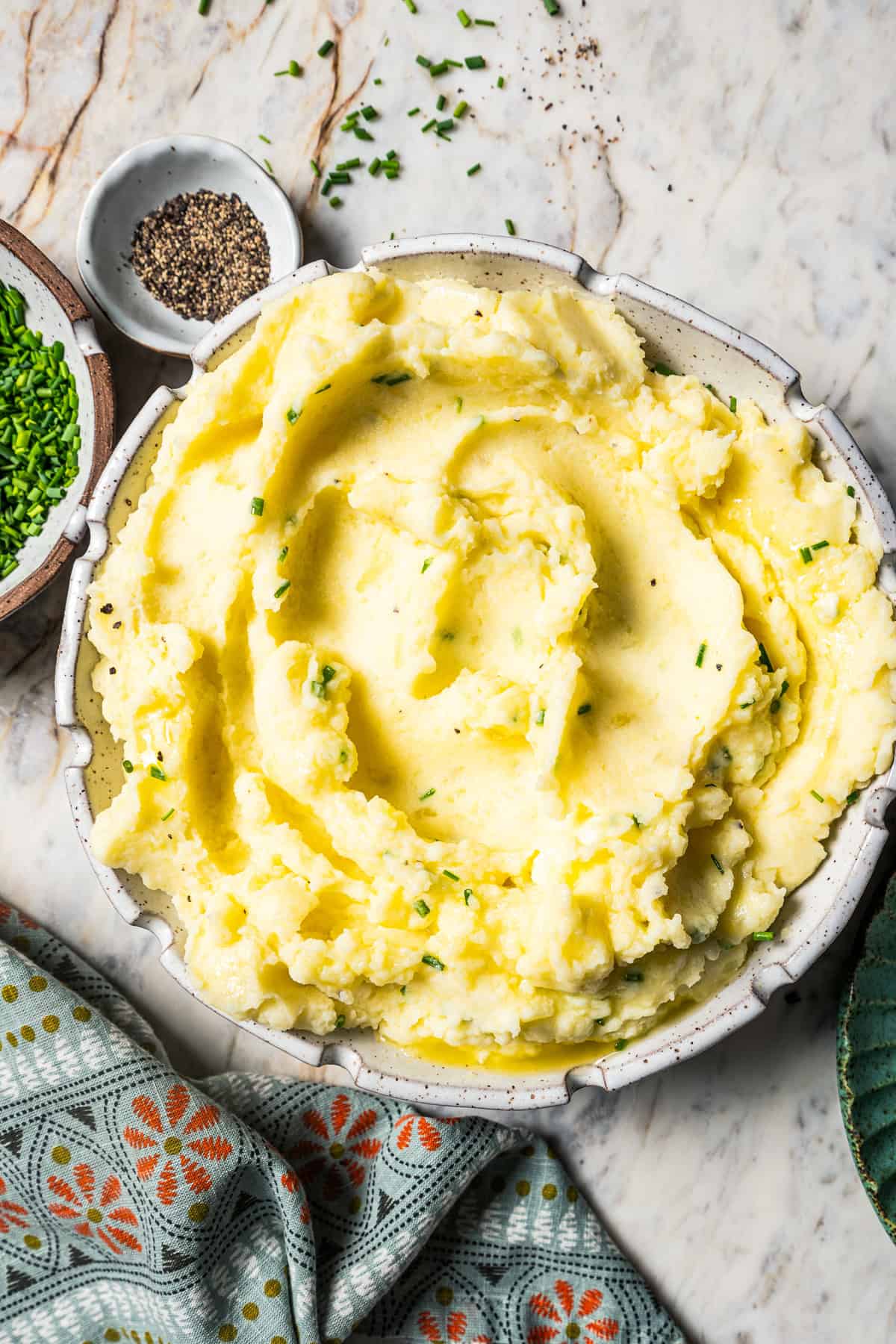
Pin this now to find it later
Pin It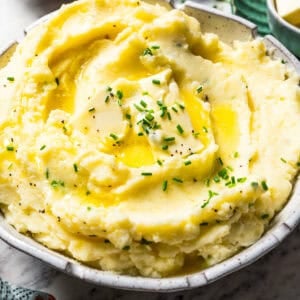
Buttermilk Mashed Potatoes
Ingredients
- 3 pounds Yukon Gold potatoes, peeled and cubed into 2-inch pieces
- 2½ teaspoons kosher salt, divided use, plus more to taste
- 4 tablespoons unsalted butter, cut into small pieces
- ½ cup sour cream
- ¾ to 1 cup buttermilk
- ¼ teaspoon freshly ground black pepper, plus more to taste
Instructions
- Cook the potatoes. Fill a large pot with water and add 2 teaspoons of kosher salt. Add the potatoes to the cold water and bring to a boil over high heat. Reduce the heat and simmer for about 15 minutes or until a fork easily pierces through the potatoes. (Test them at the 12-minute mark and then adjust accordingly.) Drain the potatoes and transfer them to a large mixing bowl.
- Mash with butter. Add the butter to the potatoes and mash with a potato masher until the potatoes are chunky, but not fully smooth.
- Add the sour cream and buttermilk. Stir in the sour cream and buttermilk and mash until completely smooth. You can adjust the amount of buttermilk depending on the texture you want. I recommend starting with 1/2 cup of buttermilk and adding small amounts until the potatoes reach your desired consistency. I usually end up using 3/4 cup of buttermilk in total.
- Adjust seasonings and serve. Add remaining 1/2 teaspoon kosher salt and 1/4 teaspoon ground black pepper. Taste and adjust seasonings as needed. Serve with your favorite mains.
Equipment
Nutrition
Nutritional info is an estimate and provided as courtesy. Values may vary according to the ingredients and tools used. Please use your preferred nutritional calculator for more detailed info.
How to Make Buttermilk Mashed Potatoes
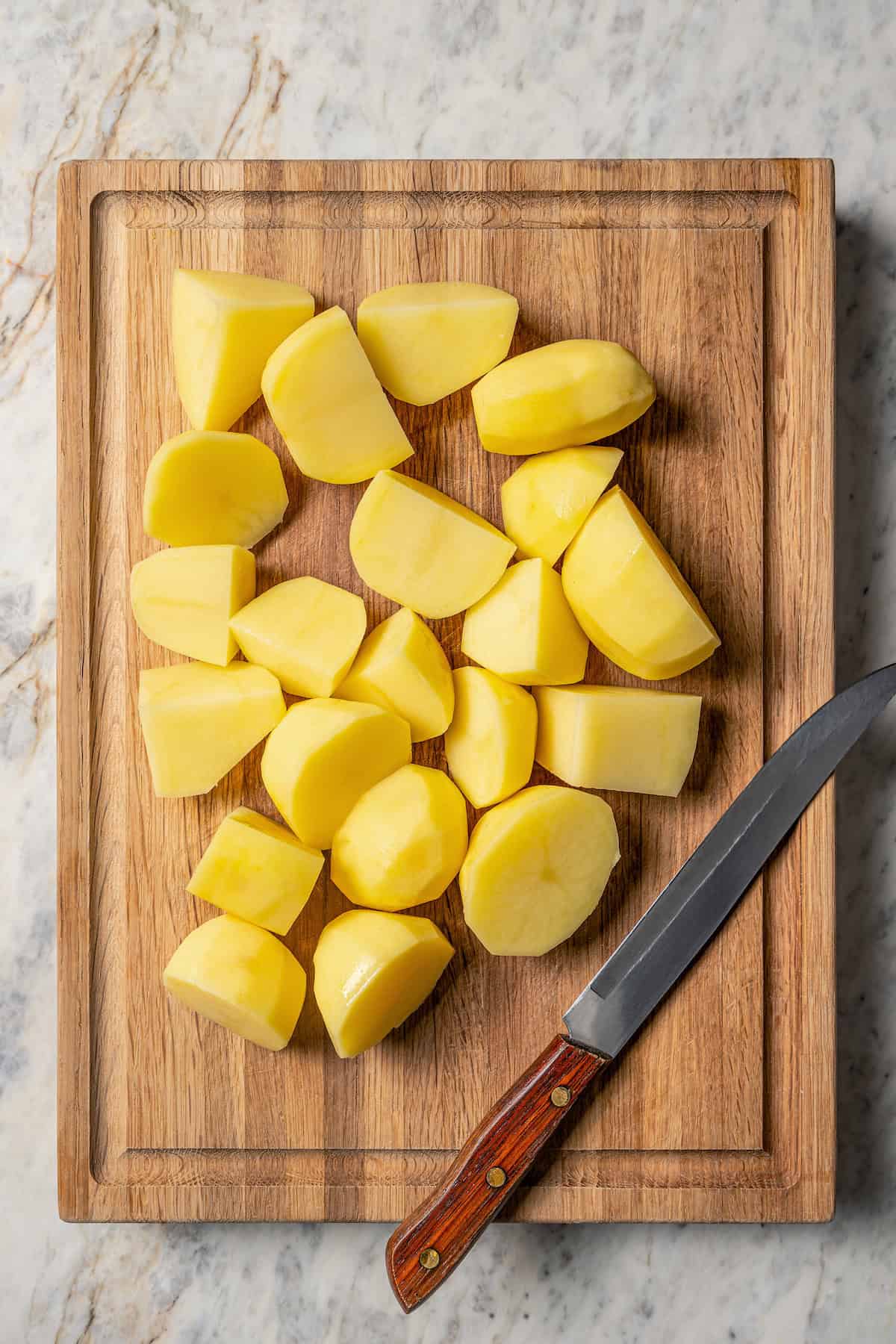
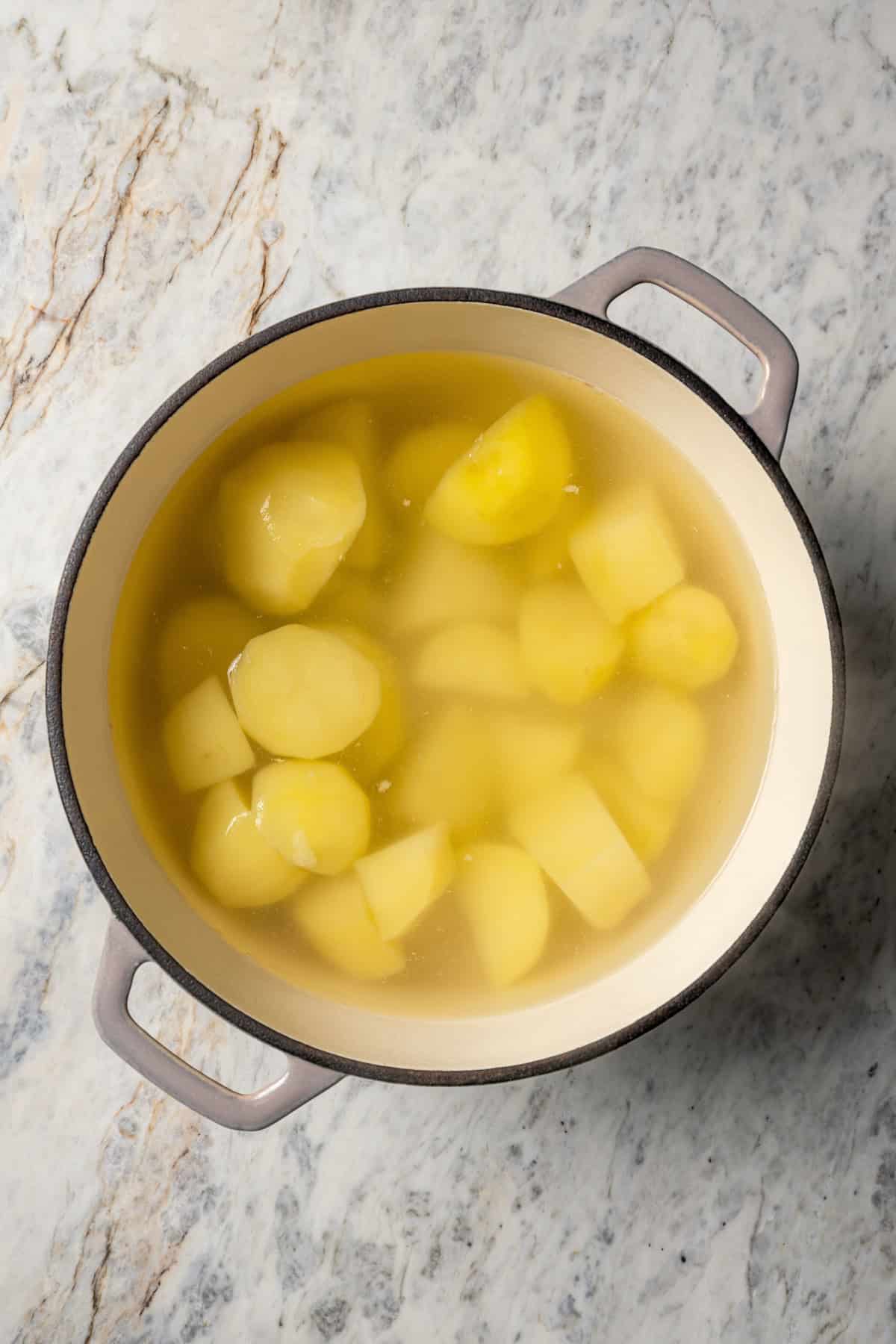
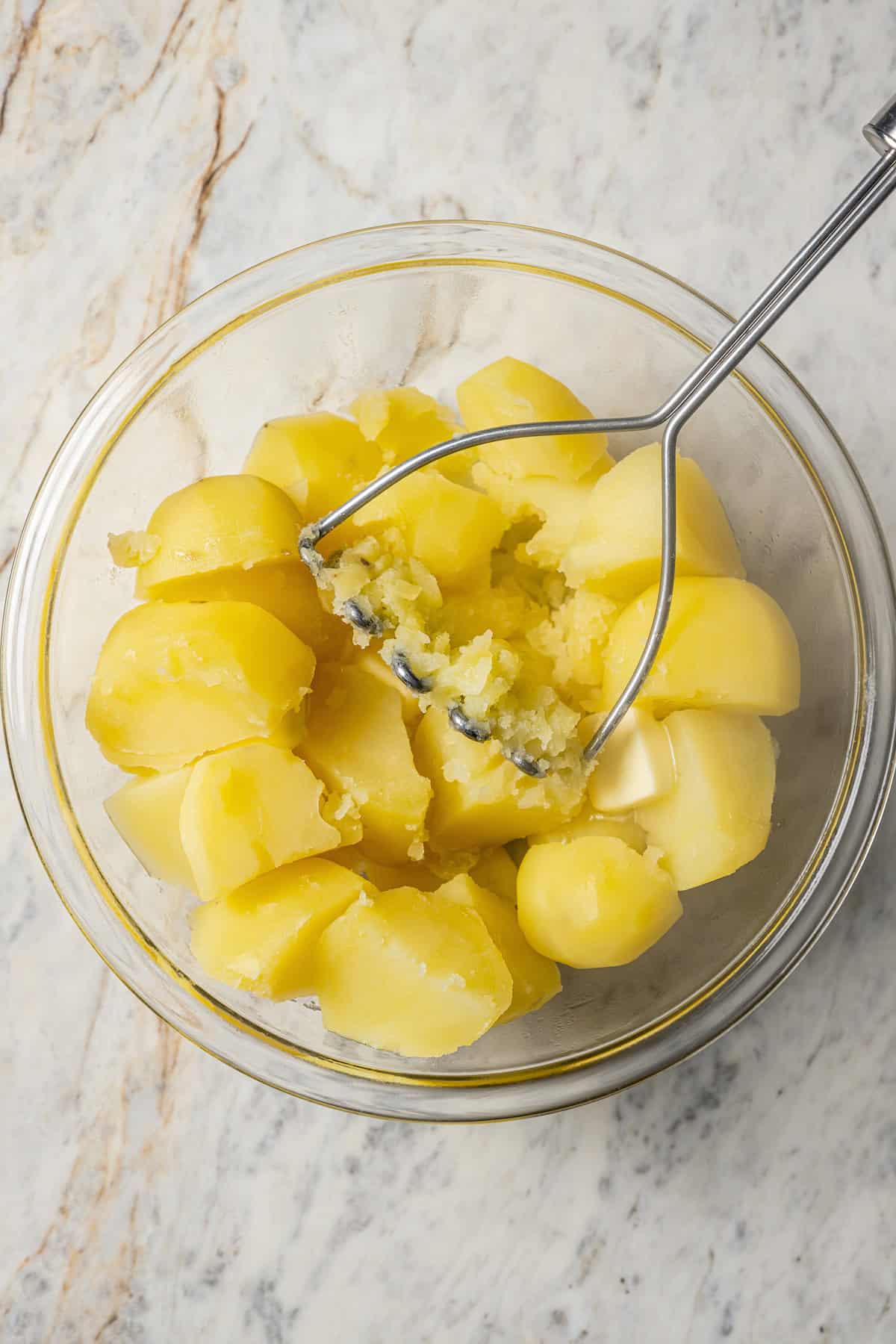
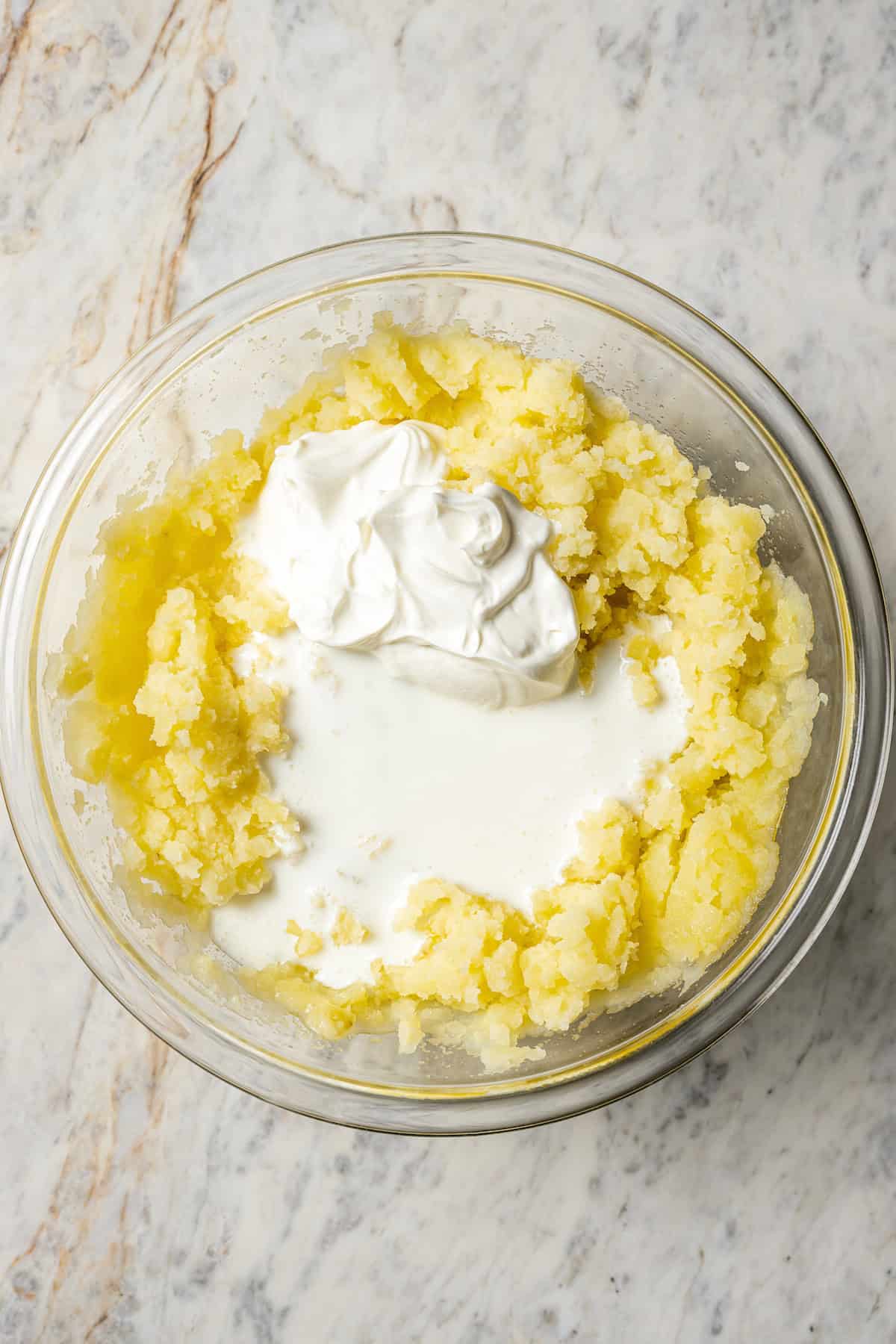
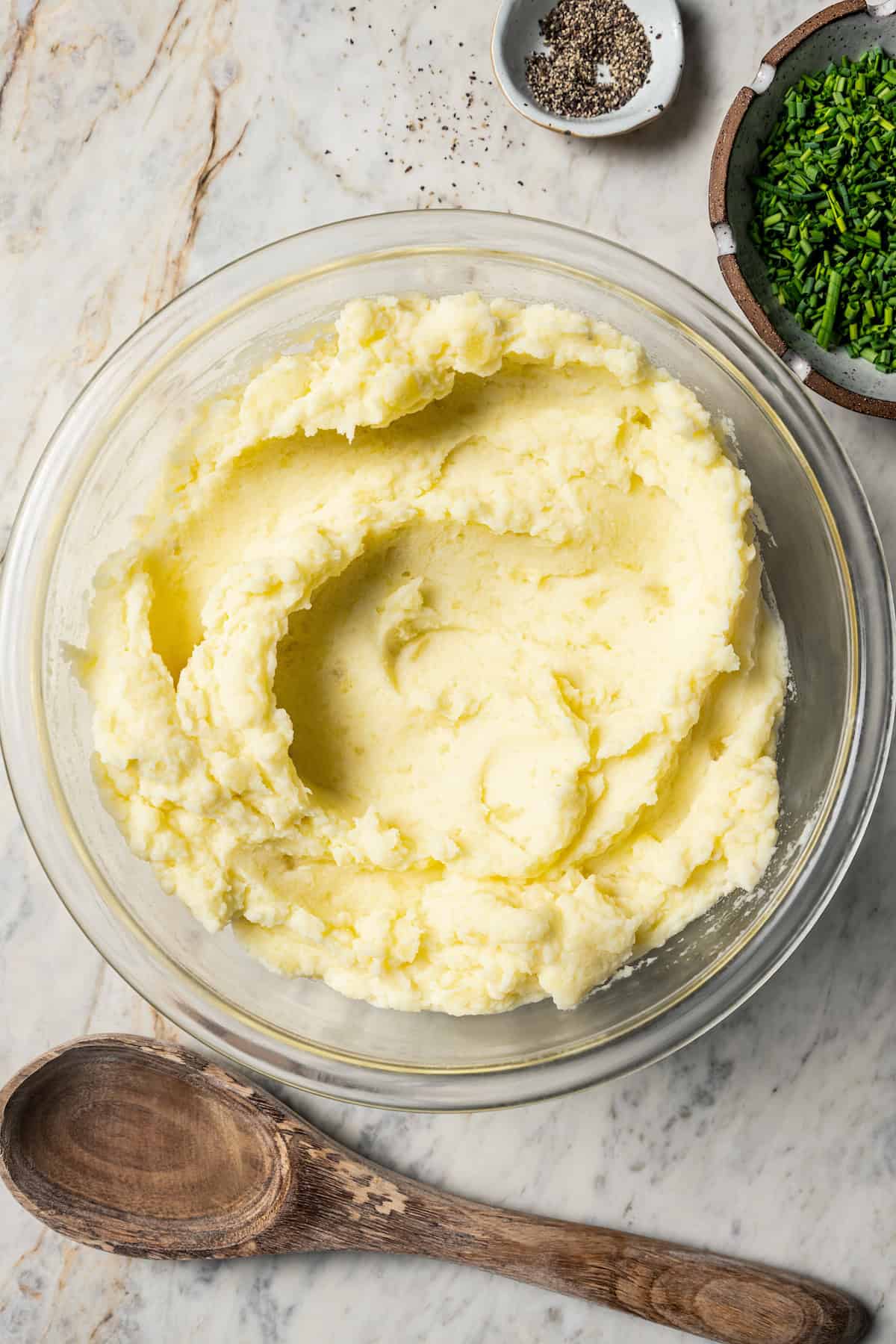
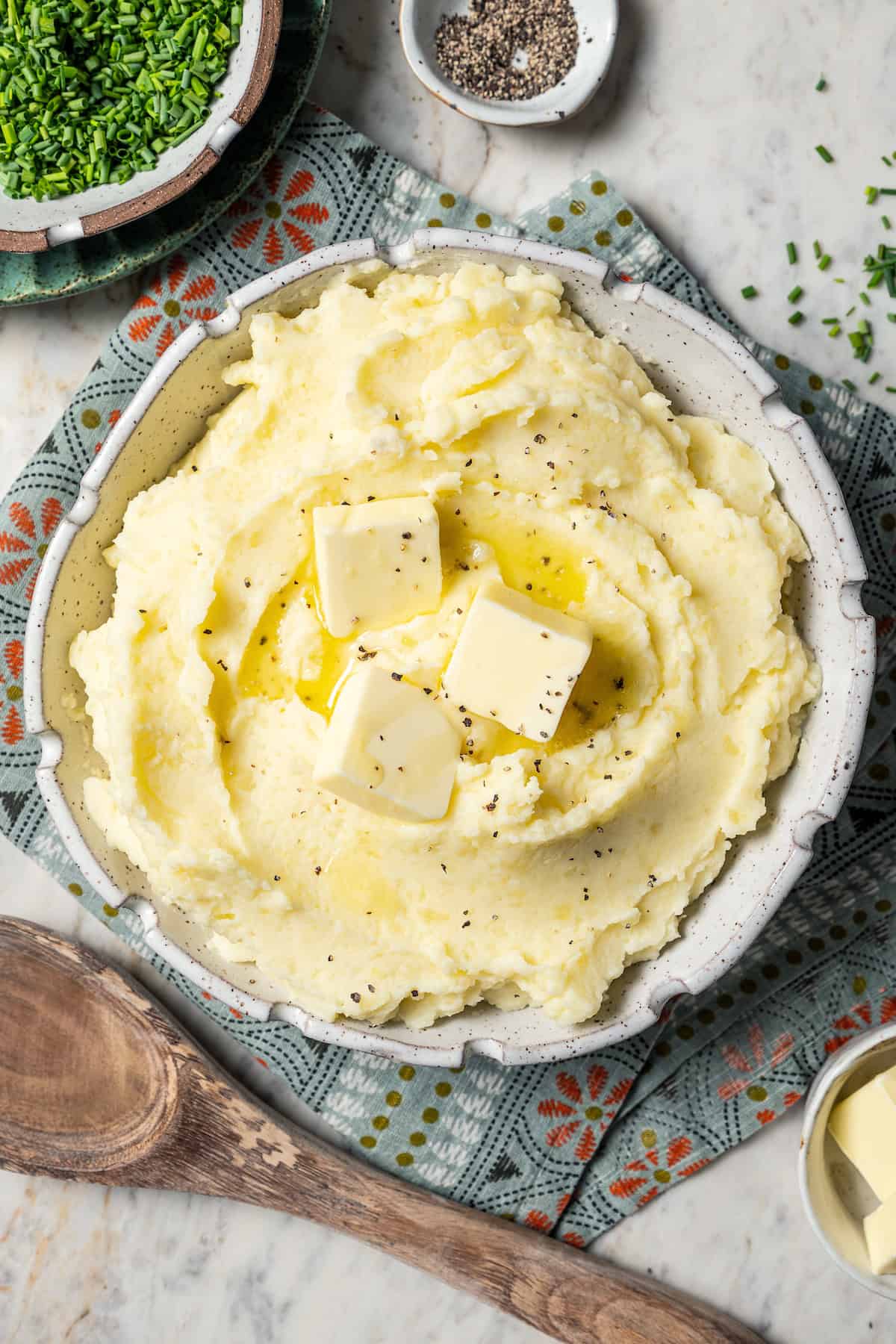
- Cook the potatoes. Cut the potatoes into even-sized cubes (peel them first or leave skins on if you prefer). Place them in a pot with cold water, then stir in salt. Bring to a boil and cook until a fork goes in easily, about 15–20 minutes. If the fork meets resistance, keep cooking; if the potatoes fall apart, they’re overdone.
- Mash with butter. Drain the potatoes, then add the butter and mash until the potatoes are chunky, but not fully smooth.
- Add the sour cream and buttermilk. Mash until completely smooth. You can adjust the amount of buttermilk depending on the texture you are going for. I recommend starting with 1/2 cup of buttermilk, then adding in small amounts until the potatoes reach your desired consistency. I usually end up using 3/4 cup of buttermilk in total.
- Adjust seasonings and serve. Add remaining 1/2 teaspoon kosher salt and 1/4 teaspoon ground black pepper. Taste and adjust seasonings as needed.
Storing & Reheating
- Store in the fridge: Transfer cooled mashed potatoes to an airtight container and refrigerate for up to 3 days. You can repurpose leftovers into new dishes like mashed potato pancakes, colcannon, and homemade pierogi. You could also make meatloaf sandwiches, or even layer them into a holiday sandwich with cranberry sauce, turkey, and stuffing.
- To reheat: Add a splash of milk or buttermilk to restore creaminess, then warm gently in a saucepan over low heat, stirring occasionally, or in the microwave in 30-second intervals, stirring in between. Avoid overheating, as it can cause the potatoes to become dry or gummy.
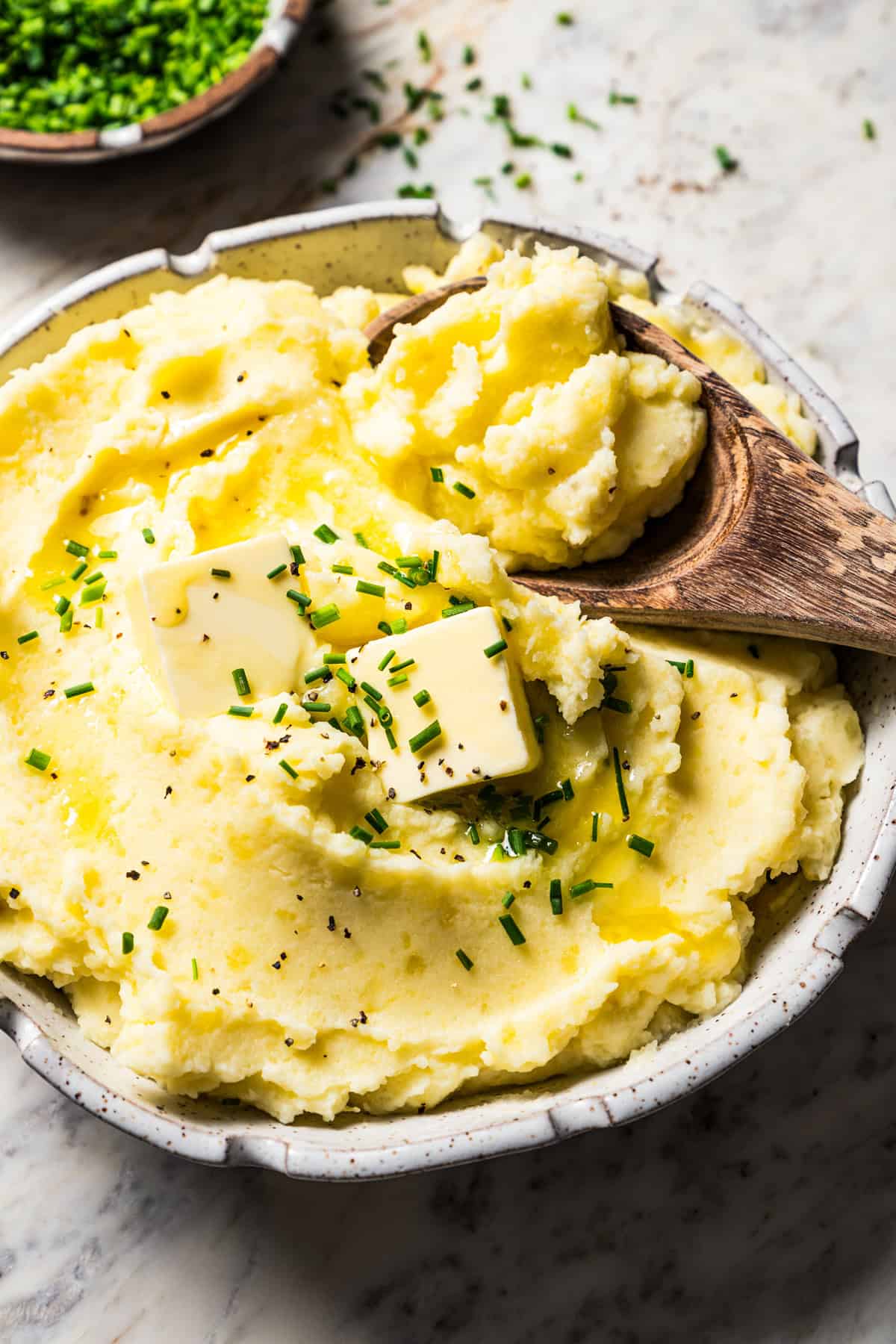
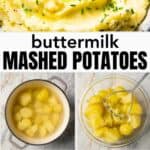
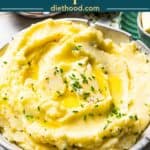








Your buttermilk mashed potatoes were big hit. My grandchildren couldn’t get enough. Now they prefer buttermilk over regular mashed potatoes.
Can you please reduce the number of recipes you send weekly. To once a week.
Thank You
S. Robertson
I’m thrilled you and your grandkids enjoyed it! Thank YOU! 🙂